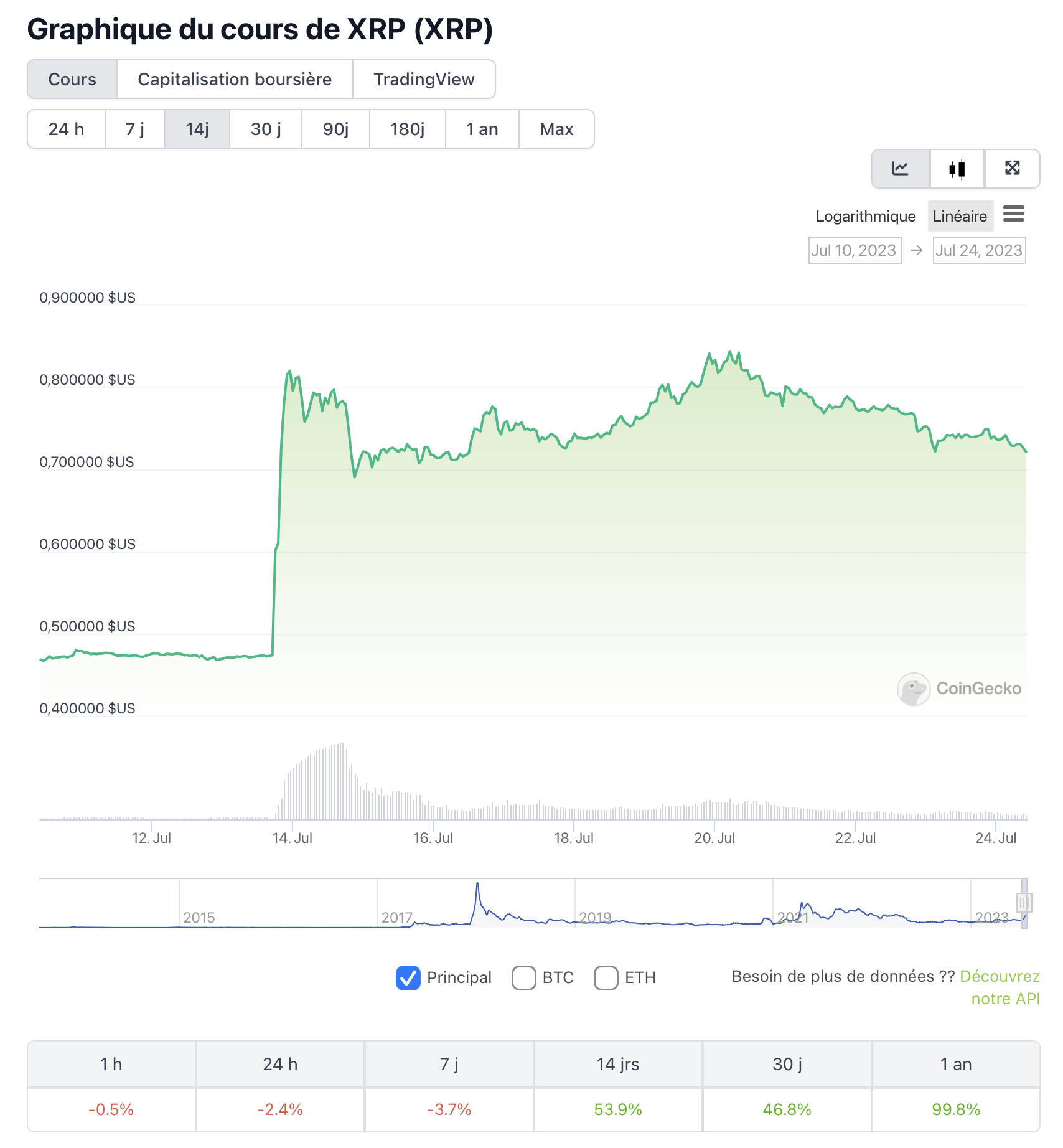As blockchain technology becomes more popular and cryptocurrency adoption grows, the issue of regulation has become a hot topic. As market players seek to evolve in an ever-changing environment, the Securities and Exchange Commission (SEC) has come under fire for its management of the regulation of this sector. One of the loudest voices speaking out against the SEC’s approach is Brad Garlinghouse, CEO of Ripple.
Brad Garlinghouse’s criticism of the SEC
Brad Garlinghouse recently voiced his displeasure dealing with the SEC’s approach to cryptocurrency regulation. In a series of tweets, he accused the agency of creating a “mess” by claiming to be the guardian of the cryptocurrency without having the legal jurisdiction to do so. According to him, this situation has left consumers “to carry the burden in bankruptcy court while the SEC holds press conferences”.
The SEC position
On his side, the SEC recently announced its intention to appeal a court ruling in favor of Ripple, claiming that the decision added “unsubstantiated requirements” to the determination of what constitutes a financial security. In parallel, SEC Chairman Gary Gensler Asked Congress For Additional Funding To Strengthen Cryptocurrency Market Oversighthighlighting the need for additional resources to protect investors and ensure fairness and efficiency in the crypto asset market.
The consequences for Ripple and the cryptocurrency market
The outcome of this legal conflict between Ripple and the SEC has significant implications for the entire cryptocurrency market. Following the court ruling in favor of Ripple, the price of XRP, Ripple’s cryptocurrency, rose significantly.

However, the announcement of the SEC call cast doubt on the future of Ripple and XRP. Despite these challenges, Ripple continues to grow, with plans to expand beyond US borders and strategic partnerships to facilitate cross-border payments.
The call for clear regulation
At the heart of Garlinghouse’s reviews is an call for clear legislation rather than regulation by law enforcement. He argues that the latter approach only adds to confusion for market participants and fails to protect retail investors. This issue of regulatory clarity is crucial for the future of cryptocurrency, as it could determine how this market evolves and how companies can innovate in this area.
Brad Garlinghouse’s criticism of the SEC highlights the regulatory challenges the cryptocurrency market faces. As the SEC seeks to strengthen its oversight of this market, industry players, like Ripple, are calling for clearer legislation to protect investors and foster innovation. The outcome of this dispute may well shape the future of cryptocurrency regulation, a topic that will undoubtedly remain at the center of debate for years to come.
Source : Brad Garlinghouse
